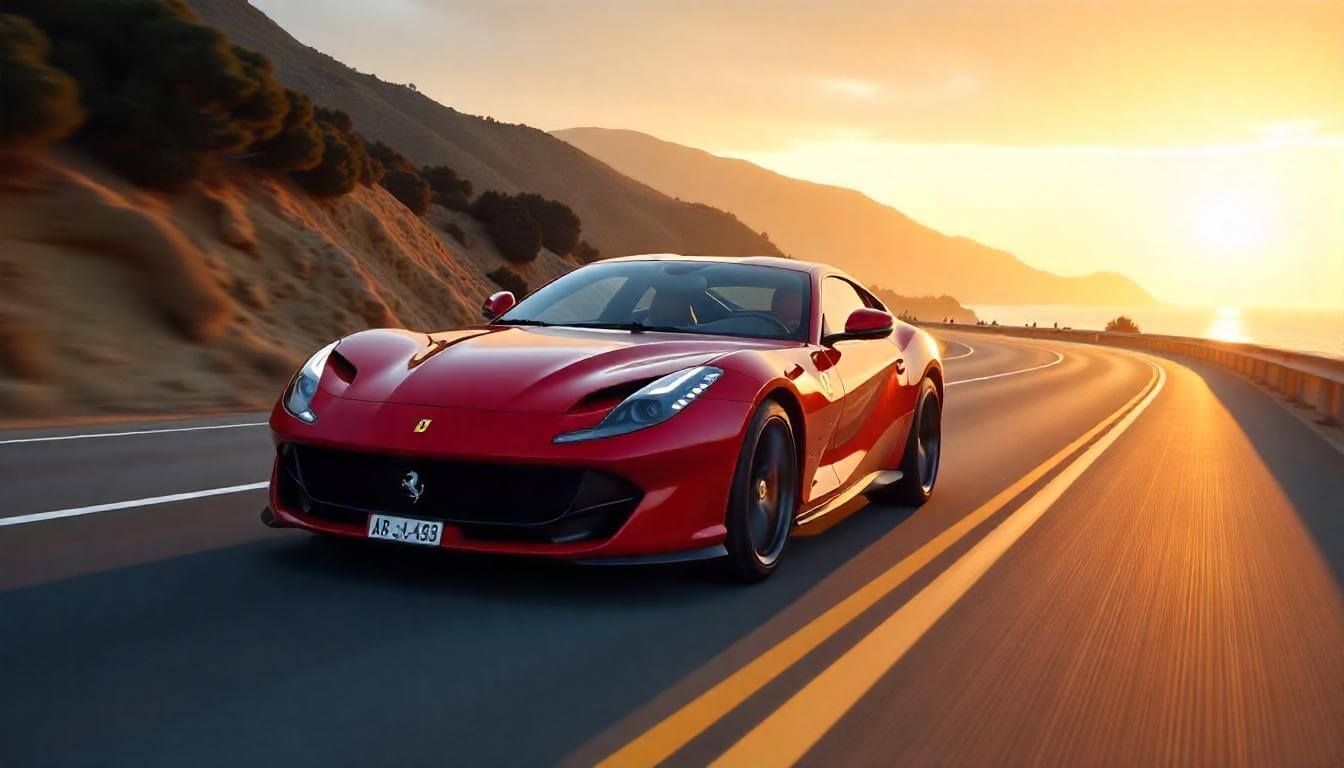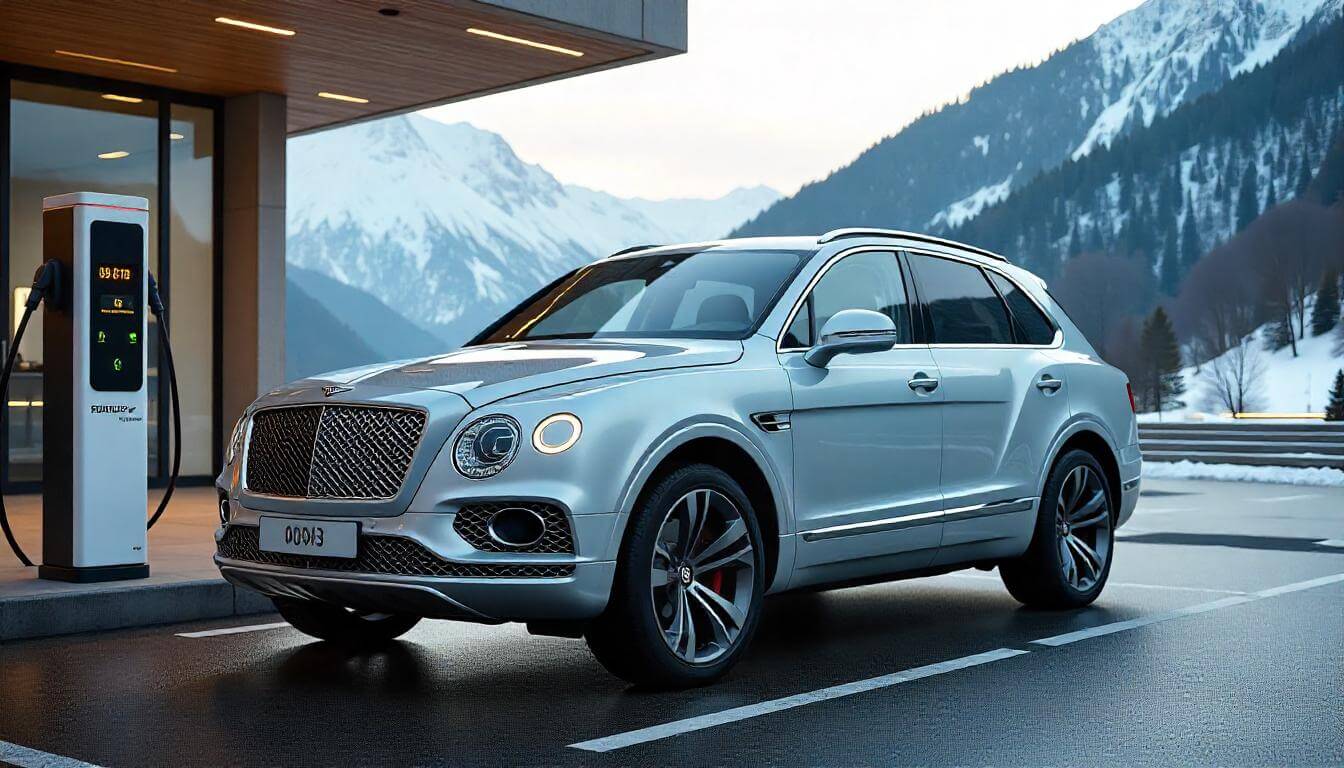Comparing premium engines in 2025 is becoming a key issue for luxury car buyers. Petrol, diesel and hybrid motors offer different benefits, whether it's power, economy or environmental friendliness. For example, the Bentley Bentayga Hybrid combines electricity and petrol, while the Audi Q7 with diesel saves fuel. In this article, we'll break down the features of each engine type, their pros and cons, and help you choose the best option for a premium auto. Let's start with the main characteristics.
Petrol engines: engine comparison in the premium class
Petrol engines remain popular in the premium class. For example, the Lamborghini Aventador is equipped with a V12 6.5 litre. It produces 780 horsepower. Also, the Aston Martin DB11 AMR uses a V12 5.2 litre. Its output is 630 horsepower. In addition, petrol motors provide dynamics. Acceleration to 100 kilometres per hour in the Aventador takes 2.8 seconds. Thus, petrol is ideal for speed.
Pros and cons of petrol
Petrol engines give you power. For example, the Ferrari 812 Superfast with a V12 accelerates in 2.9 seconds. They also sound aggressive. This appeals to sports enthusiasts. However, fuel consumption is high. For example, the Aventador consumes 18 litres per 100 km. In addition, CO2 emissions are 398 g/km. Also, maintenance is more expensive. Therefore, petrol is suitable for enthusiasts.
Diesel engines: premium auto engines
Diesel engines are appreciated for their economy. For example, the Audi Q7 50 TDI uses a V6 3 litre. It produces 286 horsepower. Also, the BMW X5 xDrive40d is equipped with a 3 litre diesel engine. Its output is 340 horsepower. In addition, the fuel consumption is low. The Q7 consumes 7 litres per 100 km. Thus, the diesel is economical for long journeys.
Economy and durability
Diesel engines save fuel. For example, the Jaguar F-Pace D300 uses 6.5 litres per 100km. They are also durable. The BMW X5 diesel engine lasts up to 300,000 kilometres. In addition, NOx emissions have been reduced. Modern filters reduce them by 90%. However, the diesel is slower. Acceleration of the Q7 to 100 km/h takes 6.1 seconds. Therefore, diesel is chosen for practicality.
Hybrid engines: comparison of motors in luxury cars
Hybrid engines are gaining popularity. For example, Bentley Bentayga Hybrid combines a V6 3 litre and an electric motor. The total output is 449 horsepower. Also, the Lexus LS 500h uses a hybrid system. It produces 354 horsepower. In addition, hybrids are fuel efficient. The Bentayga uses 3.5 litres per 100 kilometres. Thus, hybrids balance power and ecology.
Environmental friendliness and efficiency
Hybrids reduce emissions. For example, the Lexus LS 500h emits 147g/km of CO2. They also get by on electricity. The Bentayga goes 50km without petrol. Hybrids are also quieter. This adds to comfort. However, the batteries add weight. For example, the LS 500h weighs 2,300kg. Also, charging takes time. That's why hybrids are suitable for the city.
Performance: engine comparison in the premium class
Performance depends on the type of engine. For example, the petrol Ferrari 812 Superfast produces 800 horsepower. Also, the diesel Audi Q7 50 TDI delivers 600 Nm of torque. In addition, the hybrid Bentley Bentayga accelerates to 100 km/h in 5.5 seconds. Thus, each engine type offers its own advantages.
Dynamics and speed
Petrol engines lead the way in speed. For example, the Aston Martin DB11 AMR reaches 334 km/h. Also diesel engines give traction. The BMW X5 xDrive40d has 700 Nm. In addition, hybrids provide smoothness. The Lexus LS 500h accelerates without any jerkiness. Hybrids also save money on the motorway. So the choice depends on your driving style.
Economy: engine choice for the premium class
Economy is an important factor. For example, the diesel Jaguar F-Pace D300 consumes 6.5 litres per 100 km. Also, the hybrid Bentley Bentayga consumes 3.5 litres. In addition, the petrol Lamborghini Aventador consumes 18 litres. Also the cost of fuel has an impact. Diesel is cheaper than petrol by 10%. Thus, diesel and hybrids are more economical.
Non-current expenditure
Diesel engines reduce costs. For example, the Audi Q7 50 TDI saves $1,000 a year on fuel. Hybrids also reduce costs. The Lexus LS 500h saves $800 annually. Also, petrol engines are more expensive to run. Ferrari 812 Superfast requires $2,000 on fuel per year. Also maintenance of hybrids is more complicated. So consider the long term costs.

Environmental friendliness: premium: petrol, diesel, hybrid
Environmental friendliness is becoming a priority. For example, the hybrid Bentley Bentayga emits 79 g/km of CO2. The diesel BMW X5 xDrive40d also uses filters. These reduce NOx by 90%. In addition, the petrol Aston Martin DB11 AMR emits 303g/km of CO2. Thus, hybrids lead the way in environmental performance.
Norms and standards
New standards are becoming stricter. For example, Euro 7 requires emissions below 100 g/km. Hybrids are also complying with the regulations. The Lexus LS 500h already passes Euro-7. In addition, diesel engines are improving. The Audi Q7 50 TDI reduces emissions by 20%. Also petrol engines are lagging behind. So the environment affects the choice.
Reliability: engine comparison in the premium class
Reliability depends on the type. For example, the diesel Jaguar F-Pace D300 lasts up to 300,000 kilometres. Also, the petrol Ferrari 812 Superfast requires service every 10,000 km. In addition, the hybrid Lexus LS 500h has reliable batteries. They last for 10 years. Thus, the diesel leads the way in durability.
Typical breakdowns
Diesel engines break down less frequently. For example, the BMW X5 xDrive40d rarely has turbine problems. Hybrids also face battery wear and tear. The Bentayga Hybrid requires replacement after 8 years. Also, petrol engines are sensitive to fuel. Aston Martin DB11 AMR can fail due to bad petrol. Therefore, reliability depends on maintenance.
Comfort: premium auto engines
Comfort is linked to the engine. For example, the hybrid Lexus LS 500h is quieter. Also, the diesel Audi Q7 50 TDI provides smoothness. Its torque gives traction. Also, the petrol Lamborghini Aventador sounds loud. It can be tiring. Thus, hybrids and diesel are more comfortable.
Noise and vibration
Hybrids minimise noise. For example, the Bentley Bentayga Hybrid reduces noise by 5 decibels. Also diesel engines are quieter than before. The BMW X5 xDrive40d has noise insulation. Also, petrol engines are louder. Ferrari 812 Superfast creates 85 decibels. Also, the vibration is lower in a diesel. Therefore, hybrids and diesels win out.
Cost: comparison of motors in luxury cars
The price depends on the engine. For example, the petrol Aston Martin DB11 AMR costs $220,000. Also, the diesel Jaguar F-Pace D300 will cost $70,000. Also, the hybrid Lexus LS 500h costs $90,000. Also petrol service is more expensive. Ferrari 812 Superfast requires $5,000 per year. Thus, diesels and hybrids are cheaper.
Service costs
Hybrids are more complicated to maintain. For example, the Bentayga Hybrid requires $3,000 per year. Also, the diesel Audi Q7 50 TDI costs $2,000. Also, the petrol Lamborghini Aventador costs $6,000 per year. Also, parts for hybrids are more expensive. The LS 500h battery costs $4,000. So calculate the costs in advance.
The future: engine choice for the premium class
The future is changing priorities. For example, hybrids will become standard by 2030. Also, diesel engines will leave the premium class. Euro 7 makes them more difficult to produce. In addition, petrol engines will remain for enthusiasts. Ferrari will continue to produce V12s. Also, synthetic fuels can save petrol. Thus, hybrids are in the lead.
Trends and innovations
Technology is changing the market. For example, solid state batteries will give hybrids 1,000 kilometres of range. Also, diesel filters will become more efficient. In addition, petrol engines will get AI turbines. They will increase power. Also hydrogen engines will appear in the premium class. So the future promises change.
Conclusion: engine comparison in the premium class
Comparing engines in the premium class shows that each type has its pluses. Petrol engines, as in the Ferrari 812 Superfast, give power. Diesel ones, as in the Audi Q7, save fuel. Hybrids, like the Bentley Bentayga, balance ecology and comfort. So the choice depends on your priorities. Choose wisely and enjoy luxury.

 Engine comparison: petrol, diesel or hybrid in the premium class">
Engine comparison: petrol, diesel or hybrid in the premium class">
